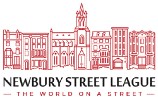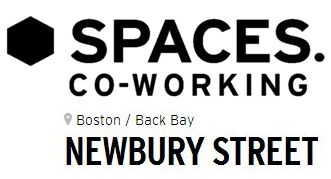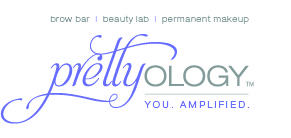RESPECTFULLY SUBMITTED BY:
Greater Boston Convention & Visitors Bureau and
Cambridge Office for Tourism
OBJECTIVE
The objective of this document is to provide a path forward for determining informed
State and Local guidelines for maximum capacities of private meetings, events and
gatherings in hotels. These recommendations demonstrate how hotels plan to adhere
to, if not exceed, State and Local safety protocols in Massachusetts while enabling
hotels to maximize revenue generation and increase staffing to service larger groups. This
proposal has been thoughtfully vetted and produced by a committee of hotel, tourism
and hospitality professionals that worked in concert with the Massachusetts Health
Council to craft guidelines to protect public health. This proposal is respectfully submitted
for your consideration to assist our industry that has been decimated by the COVID-19
pandemic and resulting economic free fall.
BACKGROUND
Tourism is the third largest industry in Massachusetts, accounting for 240,000 jobs and
providing $40 billion in direct spending annually, and $1.6 billion in total State and Local
tax revenue. Occupancy Tax revenue alone totals $513M in the Commonwealth. To
bring the numbers into a more local focus, the hotel and hospitality industry in Greater
Boston / Cambridge provides 140,000 jobs, $22.6 billion in direct spending, $840M
total State and Local tax revenue along with an additional $318M in Occupancy Tax
annually.
The tourism and hospitality industries directly employ one out of every ten Massachusetts
residents. Tourism represents the most diverse workforce in the Commonwealth with the
lowest barrier to entry and ample opportunity to advance. This industry has consistently
provided revenues that support the infrastructures of our cities and towns and has
consistently received little investment from the State to maintain our industry’s future. We
have included data in the attached appendix relating to the negative impact to the
hospitality industry in Boston as provided by Pinnacle Advisory Group.
As we find ourselves in phase 2 and on the verge of phase 3 of the reopening of
Massachusetts plan, many of our hotels are still closed. While hotels were approved
for opening as of June 8th the critical absence of Meeting and Event business as a
contributor of business certainty is needed to reopen these facilities. Without a certain
and critical path forward on this front our future remains very uncertain.
Now we are asking for a fair evaluation of our industry guidelines and restrictions so we
can begin the long process of rebuilding in the most competitive market our industry has
seen in decades, if not in history.
PRIVATE MEETINGS, EVENTS AND GATHERINGS IN HOTELS 1
BACKGROUND CONTINUED
The committee has done its homework, and what follows is the result of those efforts. We
ask your consideration on the guidelines for capacities for private meetings, events and
gatherings in hotels and that you consider the effect it will have not just for hotels, but for
so many other industries and people of the Commonwealth. This pandemic has negatively
impacted economies worldwide, but none worse than that of the United States, and few
states worse than Massachusetts. The economic impact of tourism in Massachusetts is
substantial and merits strong consideration.
RESPECTFULLY SUBMITTED BY:
Martha J. Sheridan Robyn Culbertson
President & CEO Executive Director
GBCVB Cambridge Office for Tourism
David Martin Daniel Donahue
Executive Director President
Massachusetts Health Council Saunders Hotel Group
George Terpilowski Raymond Hammer
Regional VP N.E. US Region & General Manager General Manager
Fairmont Copley Plaza Westin Copley Place Boston
James Carmody Alan Smith
General Manager/Vice President General Manager
Seaport Hotel Boston Boston Marriott Copley Place and
Sheraton Boston Hotel
PROPOSAL
We propose that hotels may commence hosting private meetings and events in Phase 3
of the Commonwealth’s Reopening Plan at 40% of the stated fire code occupancy per
function room, with 6-foot spacing, not to exceed 100 guests. In the later part of Phase 3,
progress to 60%, per function room, with 6-foot spacing, not to exceed 250 guests, based on
positive performance against the state-wide COVID-19 metrics.
A private meeting and event is defined as an event at which the host (Planner) controls and
maintains the attendee list via advance registration.
PRIVATE MEETINGS, EVENTS AND GATHERINGS IN HOTELS 2
MEETING AND EVENT PLANNER RESPONSIBILITIES:
Planner will provide language in registration portal outlining expectations as it relates to
attendees adhering to the safety guidelines
• Planner is encouraged to use technological solutions where possible to reduce person to
person interactions (e.g. online registration)
• Planner must submit the following to the venue prior to the meeting or event:
• List of all vendors, address, primary contact, name and office and cell numbers
• Delivery and pick up schedule for all vendors
• Number and size of delivery trucks if venue requests
• Follow all existing state guidelines as listed below
• Follow all venue safety guidelines
• Encourage attendees to practice stationary seating– staying in the same seat for the
duration of the meeting/event
• All meeting and event attendees will be responsible for assessing and attesting to their
personal health before attempting to attend a meeting or event and if symptoms appear
to remain home.
• Notify event/meeting planner and property security should there be a change in health
status during the meeting or event.
• Must wear masks except when dining and where an individual is unable to wear a face
covering due to medical condition or disability
• Must wash/sanitize hands frequently as advised by WHO, CDC, state and property
guidelines.
• Must maintain social distancing practices while moving about the meeting/event space.
SOCIAL DISTANCING SET UP
Hotel meeting and event facilities must comply with the following distancing rules for
providing meeting and food and beverage services to assure effective compliance with
social distancing requirements. Adherence to appropriate fire code occupancy as outlined
above and depending on current re-opening phase.
• Seating must be positioned to maintain at least 6-foot distance from all other seats and
any high foot traffic areas (e.g. routes to bathroom, entrances, exits)
• The size of a party seated at a table cannot exceed 6 people
• 66” Round Table: 3 people
• 72” Round Table: 4 people
• 6-foot schoolroom table – 1 person
• 8-foot schoolroom table – 2 people
• Theatre style: minimum 6 feet between chairs (on all sides)
PRIVATE MEETINGS, EVENTS AND GATHERINGS IN HOTELS 3
SOCIAL DISTANCING SET UP CONTINUED
• Establish directional hallways and passageways for foot traffic if possible, to minimize
contact (e.g.one-way entrance and exit to meeting and event space). Post clearly
visible signage regarding these policies.
• Prohibit lingering in common area (e.g. bathrooms) and ensure social distancing in
common areas by marking 6 feet spacing with tape or paint on the floor and signage
• Bathroom capacities should be a posted occupancy with social distancing
parameters incorporated and if needed monitored by the hotel for capacity
• Improve ventilation for enclosed spaces where possible (e.g. open doors and
windows). Property based HVAC system details available upon request.
MEETING AMENITIES
• Pens and writing pads available upon request
• Sanitize pens before and after each meeting; individually packaged pens and writing
pads are preferred
• Single use items whenever available
HOTEL STAFFING & OPERATIONS
The Proposed Guidelines for Private Meetings, Events and Gatherings in Hotels follows the
industry guidance developed by the state of Massachusetts, which is based upon Centers
for Disease Control and Prevention (CDC), Massachusetts Department of Health (MADH)
guidelines for COVID-19, Massachusetts Occupational Safety and Health Administration
(MAOSHA) statutes, rules and standards.
• All hotel staff will always wear face coverings
• All hotel staff must wash their hands frequently and servers must wash their hands or
apply hand sanitizer between each table interaction
• Stagger work schedules and staff meal and break times, for hotel staff and vendors,
regulating maximum number of people in one place and ensuring at least 6 feet of
physical distancing
• All customer-facing workers (e.g. servers, houseman) must minimize time spent within 6
feet of customers
• Servers should avoid touching items on tables while customers are seated to the extent
possible and dedicated staff should remove all items from the table when customers
leave.
• Designate assigned working areas for hotel employees where possible to limit
movement throughout the meeting and event space and limit contact between hotel
employees (e.g. assigning zones to servers)
PRIVATE MEETINGS, EVENTS AND GATHERINGS IN HOTELS 4
HOTEL STAFFING & OPERATIONS CONTINUED
• Supply hotel employees at workplace location with adequate cleaning products (e.g.
sanitizer, disinfecting wipes)
• Provide training to hotel employees, which may vary based upon brand, on up-to-date
safety information and precautions including hygiene and other measures aimed at
reducing disease transmission, including:
• Social distancing, handwashing, and requirement and proper use of face
coverings
• Modifying practices for serving to minimize time spent within 6 feet of customers
• Self-screening at home including temperature or symptom check
• Reinforcing that staff may not come to work if sick
• When to seek medical attention if symptoms become severe
• Which underlying health conditions may make individuals more susceptible to
contracting and suffering from a severe case of the virus
• Limit visitors and vendors on site; shipping and deliveries should be completed in
designated areas
• Ensure hotel employees do not share equipment to the extent possible (e.g., cooking
equipment, trays, etc.)
• Verify that dishwashing machines are operating at the required wash, rinse and sanitize
temperatures and with appropriate detergents and sanitizers.
• Follow all requirements of the Department of Agriculture’s Food Code regulations, even
when altering from normal types of food delivery.
• Close or reconfigure hotel employees common spaces and high density areas where
hotel employees are likely to congregate (e.g. break rooms, eating areas) to allow 6 feet
of physical distancing; redesign work stations to ensure physical distancing (e.g. separate
tables, stagger workstations on either side of processing lines so hotel employees are not
face-to-face, use distance markers to assure spacing including in the kitchen area)
• Meeting and Event facilities must screen workers at each shift by ensuring the following:
• Hotel employee is not experiencing any symptoms such as a fever (100.4 and
above), cough, shortness of breath, or sore throat.
• Hotel employee has not had ‘close contact’ with an individual diagnosed with
COVID-19. ‘Close contact’ means living in the same household as a person who
had tested positive for COVID-19, caring for a person who has tested positive for
COVID-19, being within 6 feet of a person who has tested positive for COVID-19
for 15 minutes or more, or coming in direct contact with secretions (e.g. sharing
utensils, being coughed on) from a person who has tested positive for COVID-19,
while that person was symptomatic
• Hotel employee has not been asked to self-isolate or quarantine by their doctor or
a local public health official
• Hotel employees who are sick or feeling ill must be sent home
• Anyone showing signs of illness may be denied entry
PRIVATE MEETINGS, EVENTS AND GATHERINGS IN HOTELS 5
HOTEL STAFFING & OPERATIONS CONTINUED
• Strongly encourage hotel employees who test positive for COVID-19 to disclose to the
employer for purposes of cleaning/disinfecting and contact tracing. If the employer is
notified of a positive case at the workplace, the employer should notify the local Board
of Health (LBOGH) where the workplace is located and wok with them to trace likely
contacts in the workplace and advise workers to isolate and self-quarantine
• Notify hotel employees that they may not work if they test positive for COVID-19 (they
should be isolated at home) or are found to be a close contact of someone with
COVID-19 (they should be quarantined at home)
• Testing of other staff may be recommended consistent with guidance and / or at
the request of the LBOH. Post notice to workers and customers of important health
information and relevant safety measures as outlined in government guidelines
• Post notice to workers and customers of important health information and relevant
safety measures as outlined in the Commonwealth’s Mandatory Safety Standards for
Workplace
• Hotel employees who are particularly high risk to COVID-19 according to the Centers
for Disease Control (e.g. due to age or underlying conditions) are encouraged to stay
home or arrange an alternate work assignment
• Hotel employees are strongly encouraged to self-identify symptoms or any close
contact to a known or suspected COVID-19 case to the employer
OVERALL HYGIENE PROTOCOLS
• Ensure access to handwashing facilities on site, including soap and running water, and
allow sufficient break time for workers to wash hands frequently: alcohol-based hand
sanitizers with at least 60% alcohol may be used as an alternative
• Alcohol-based hand sanitizers with at least 60% alcohol should be made available at
entrances, exits and in meeting and event space
• Post visible signage throughout the site to remind workers and attendees of hygiene
and safety protocols
• Self-serve, unattended buffets, topping bars, drink stations and other communal
serving areas must remain closed
• Condiment and similar products (e.g. salt, pepper, and salad dressing) should not be
pre-set on tables and should instead only be provided upon request either in singleserving potions (e.g. individual packages or cups) or in serving containers that are
sanitized between each use
• Utensils and place settings must be either single-use or sanitized after each use; utensils
should be rolled or packaged. Tables should not be pre-set to reduce opportunity for
exposure
• Tables and chairs must be cleaned and sanitized at the end of each meeting or event
(end of the day)
PRIVATE MEETINGS, EVENTS AND GATHERINGS IN HOTELS 6
CLEANING & DISINFECTING
• Clean commonly touched surfaces in restrooms (e.g. toilet seats, doorknobs, stall
handles, sinks, paper towel dispensers, soap dispensers) frequently and in accordance
with CDC Guidelines
• Keep cleaning logs that include date, time and scope of cleaning
• Conduct frequent disinfecting of heavy transit areas and high-touch surfaces (e.g.
doorknobs, elevator buttons, staircases)
• Implement procedures to increase cleaning/disinfecting in the back-of-house. Avoid
all food contact surfaces when using disinfectants. Food contact surfaces must be
cleaned and sanitized before use with a sanitizer approved for food contact surfaces.
Non-food contact surfaces must be frequently cleaned
• Each property will adherer to their own brand standards regarding increased
frequency of cleaning and disinfecting for both front and back of house with EPA
registered chemicals proven effective in preventing the transmission of COVID-19.
• All furniture and equipment inside meeting room sanitized before and after every
meeting or event
BOSTON LODGING MARKET RECOVERY
Why will the recovery be slow?
• 40% of the convention room nights were cancelled as of April 21; potentially more to
follow.Convention and group demand in the City accounts for approximately 30% of
total lodging demand.
• International travel accounts for about 18%-20% of lodging demand in the City.
International visitation will be significantly reduced in 2020.
• Our world renowned medical facilities drive significant lodging demand. These facilities
are taking care of Covid 19 patients, and not providing the services that bring visitors with
medical needs to the City.
• MIT, Harvard, and other institutes for higher education generate meaningful lodging to
the City – there is still uncertainty regarding how these schools will re-open in the fall;
distance learning or back to campus.
• Major events – the Boston marathon, the Red Sox, major concerts, July 4th at the Hatch
Shell, etc. have been cancelled or postponed for 2020. The events bring in lots of visitors
to the City.
• That leaves corporate and leisure demand. Massachusetts was hit hard from the virus with
delayed re-opening. This factor, coupled with a challenged economy will substantially
impact lodging demand in 2020, with an anticipated slow recovery in 2021.
*Information from Pinnacle Advisory Group







